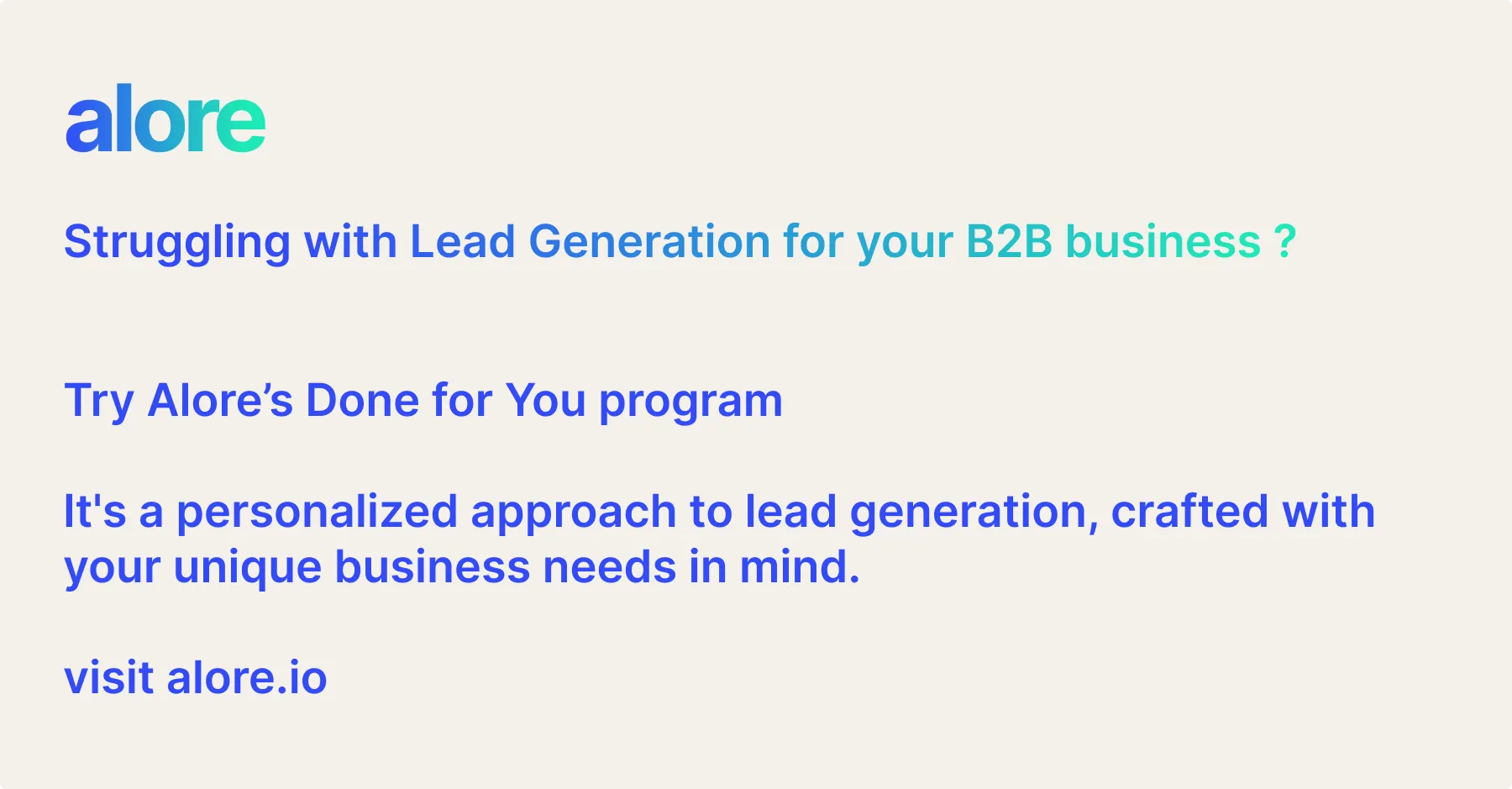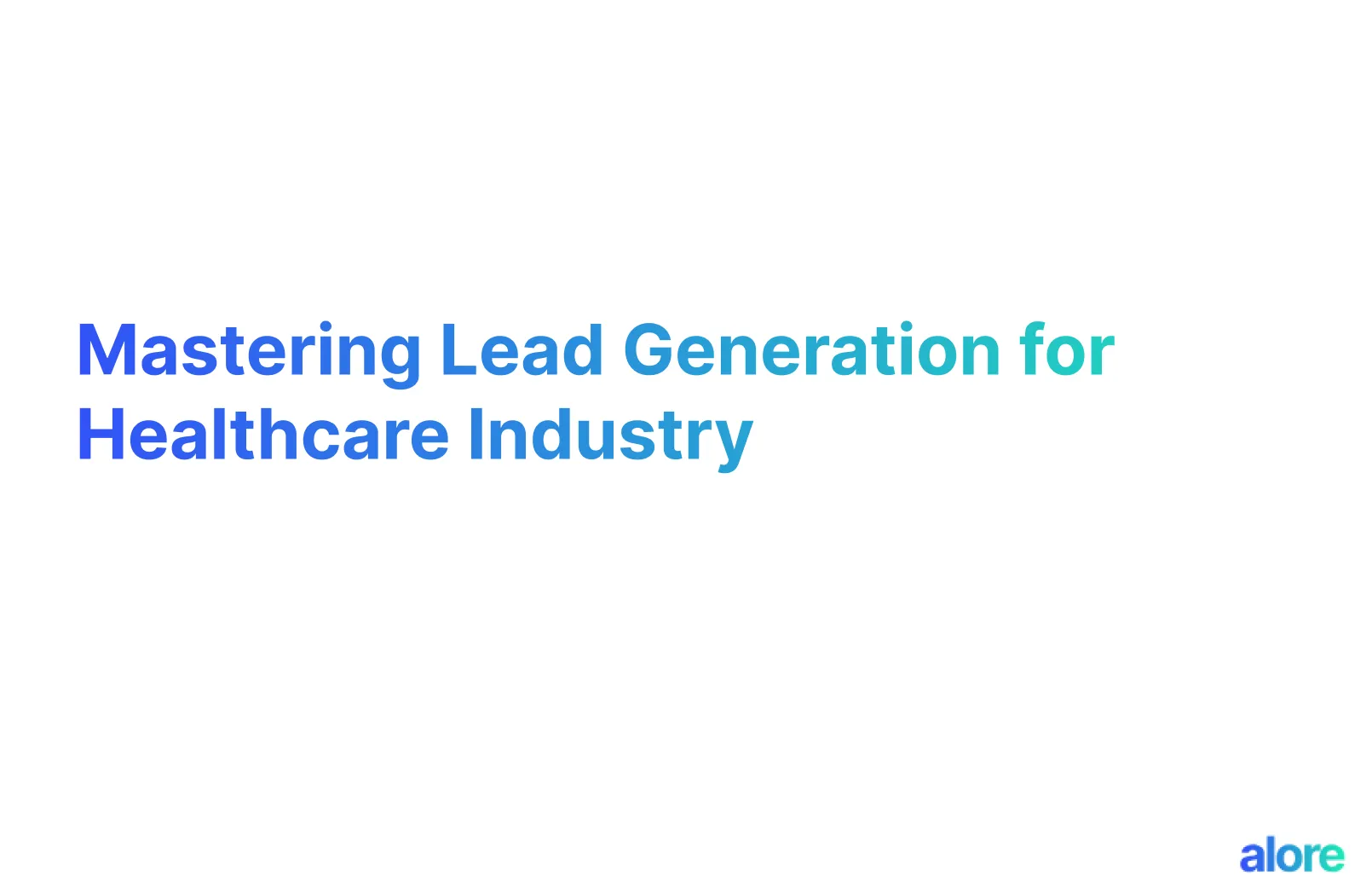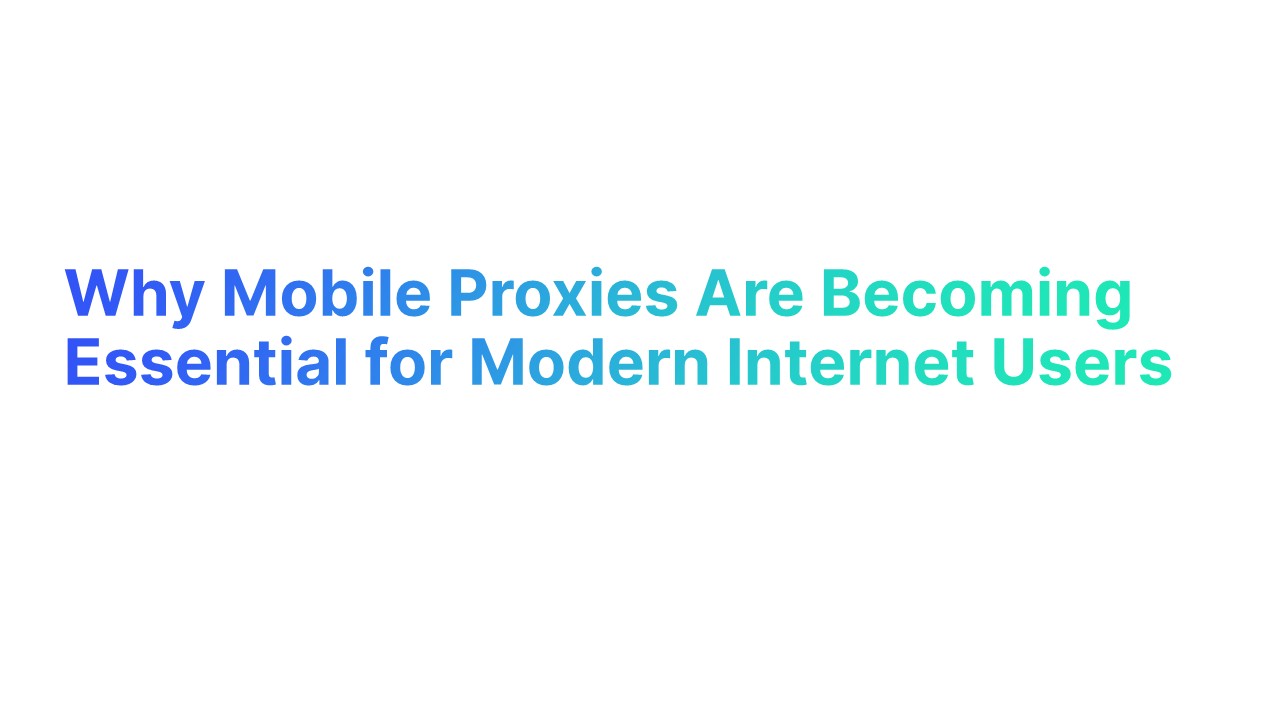Introduction to Healthcare Lead Generation

Healthcare providers can attract potential patients through lead generation, which links services with their target audience. It's a methodical process of identifying and attracting potential patients, essential for healthcare providers aiming to expand their patient base and outreach.
This strategy is more than just a marketing tool; it's a vital component in the healthcare industry's growth and sustainability.
Imagine a scenario where a small medical clinic increases its visibility online. Through focused search engine optimization (SEO), they start appearing in more online searches, attracting individuals actively seeking healthcare services.
This direct approach demonstrates the effectiveness of lead generation in healthcare, highlighting its role in connecting healthcare providers with those in need of medical assistance.
The Critical Role of Lead Generation in the Healthcare Sector
Lead generation in healthcare goes beyond just acquiring new patients. It involves building long-lasting relationships and trust within the community. Continuously engaging with new patients is not only beneficial but also essential for the growth and survival of medical practices.
This strategic approach combined with marketing techniques and the genuine desire to provide care helps to generate healthcare leads
Consider the use of social media as a tool in this strategy. A healthcare provider sharing informative content, health tips, and patient stories can create an engaging and trustworthy online presence. This approach not only amplifies their reach but also solidifies their standing as an expert in the healthcare field.
By understanding and implementing these lead generation strategies, healthcare providers can ensure a steady influx of patients and a robust online presence, positioning themselves as reliable and sought-after choices in the healthcare market.
Developing and Implementing Medical Lead Generation Strategies
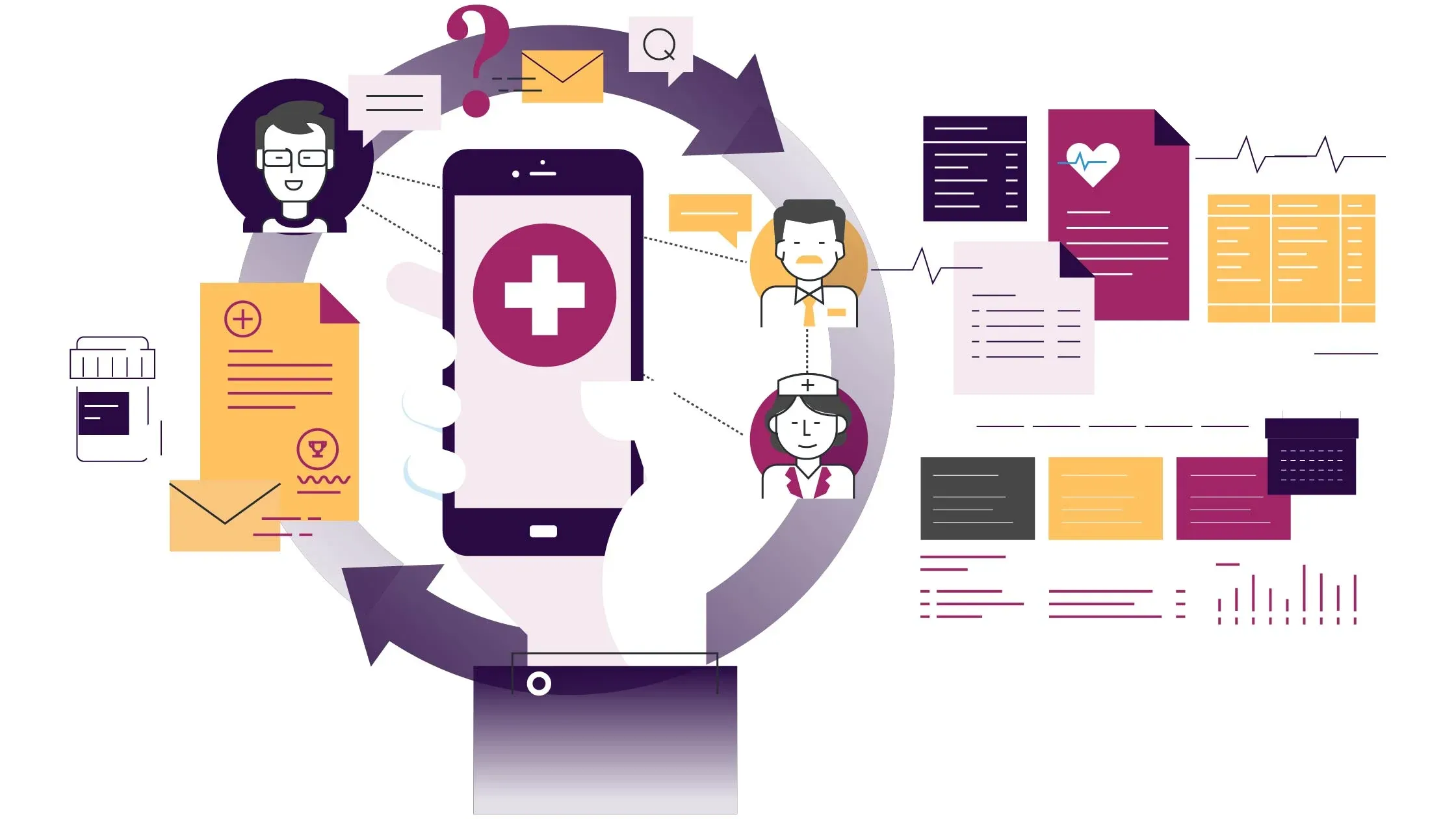
How to Generate Leads in Healthcare: 10 Effective Ways
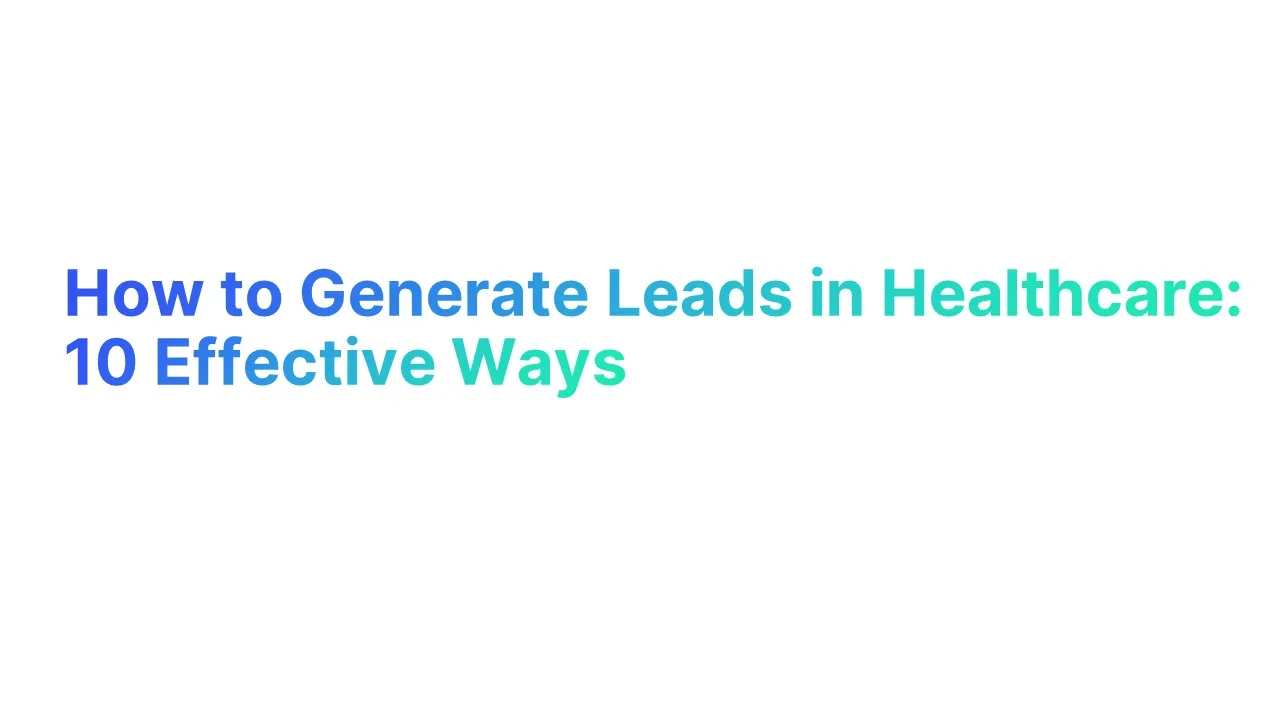
Generating leads in healthcare is a complex but rewarding process. It involves understanding your audience, creating valuable content, leveraging technology, and building lasting relationships. Here’s a detailed guide:
1. Understand Your Target Audience
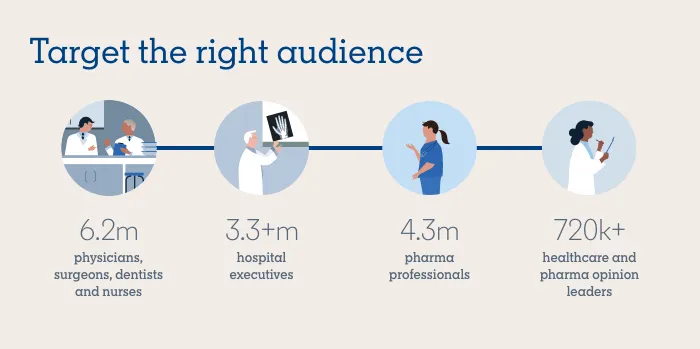
Gather Comprehensive Data: Utilize patient records, online surveys, and healthcare forums to collect detailed demographic and psychographic data.
Identify Health Trends: Analyze current health trends that resonate with your target audience using tools like Google Trends.
Create Personas: Develop patient personas based on collected data to guide your marketing strategies.
2. Develop a Unique Value Proposition
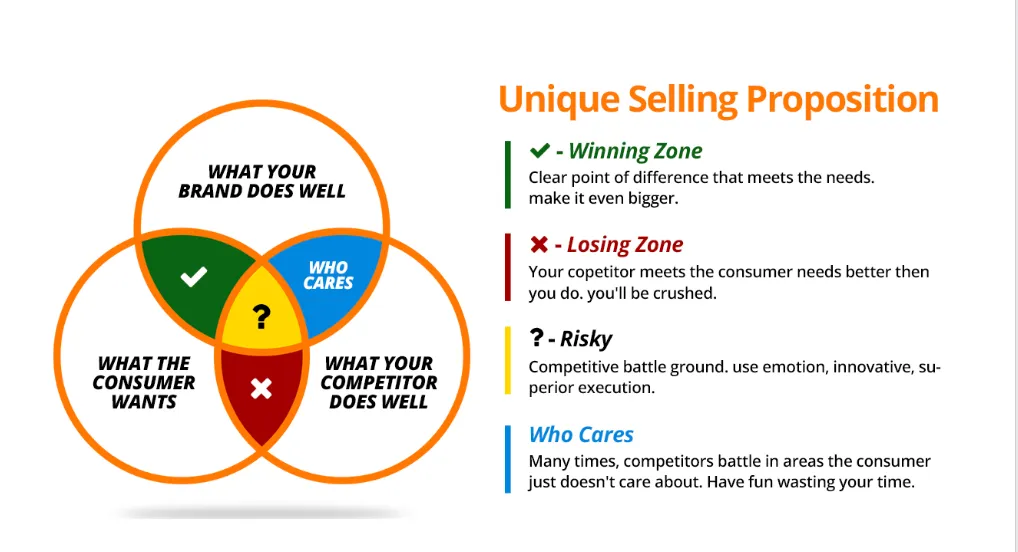
Analyze Competitors: Study competitors to find gaps in their services that you can fill.
Focus on Benefits: Clearly articulate the benefits of your healthcare services.
Regularly Update Your Proposition: Keep your value proposition updated based on changing patient needs and market trends.
3. Optimize Your Website
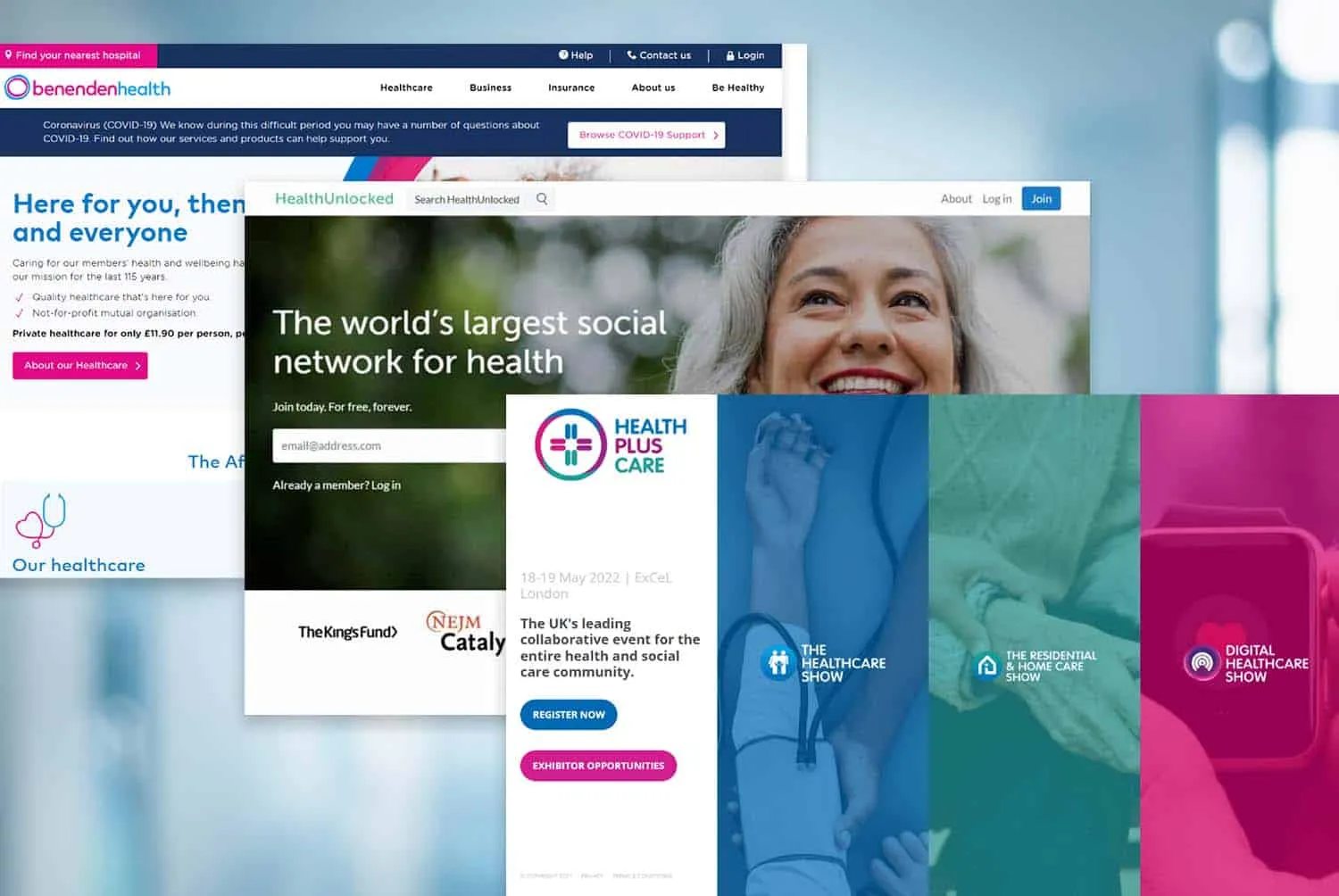
Implement On-Page SEO: Use relevant keywords, meta tags, and high-quality content to boost search engine rankings.
Enhance Site Speed and Security: Ensure your website is fast and secure to improve user experience.
Regular Content Updates: Keep your website fresh with regular blog posts, news, and health tips.
4. Diversify Digital Marketing Efforts
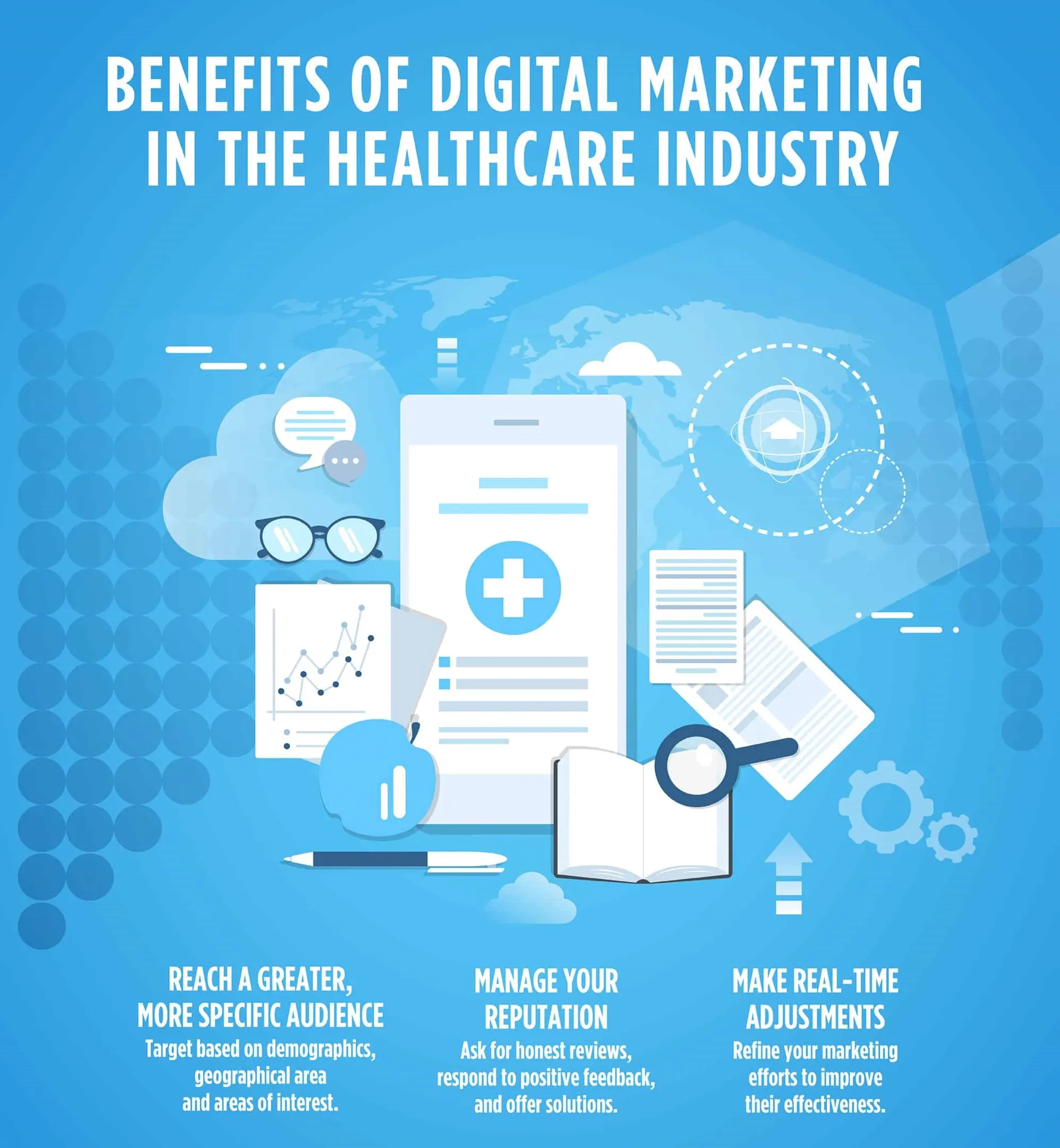
Explore Various Platforms: Use a mix of paid advertising, SEO, and social media platforms to reach a broader audience.
Personalization: Customize your marketing messages based on user behavior and preferences.
Measuring and Adjusting: Use analytics tools to track performance and adjust strategies accordingly.
5. Implement a Content Marketing Plan
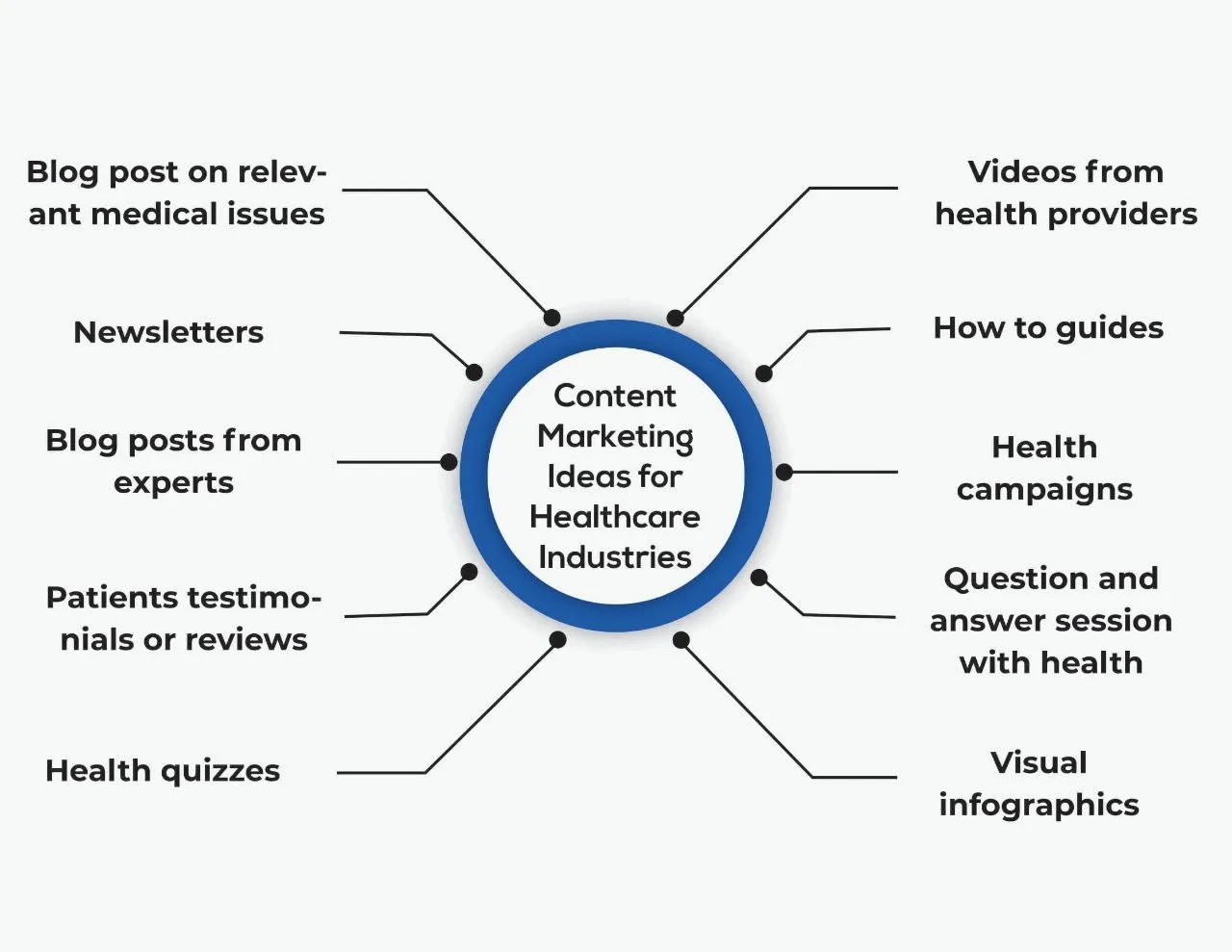
Educational Blogs and Articles: Write detailed articles addressing common health issues and preventative care tips.
Interactive Webinars: Host webinars on relevant health topics to engage with your audience.
Patient Success Stories: Share stories to humanize your brand and build trust.
6. Use Social Media Effectively
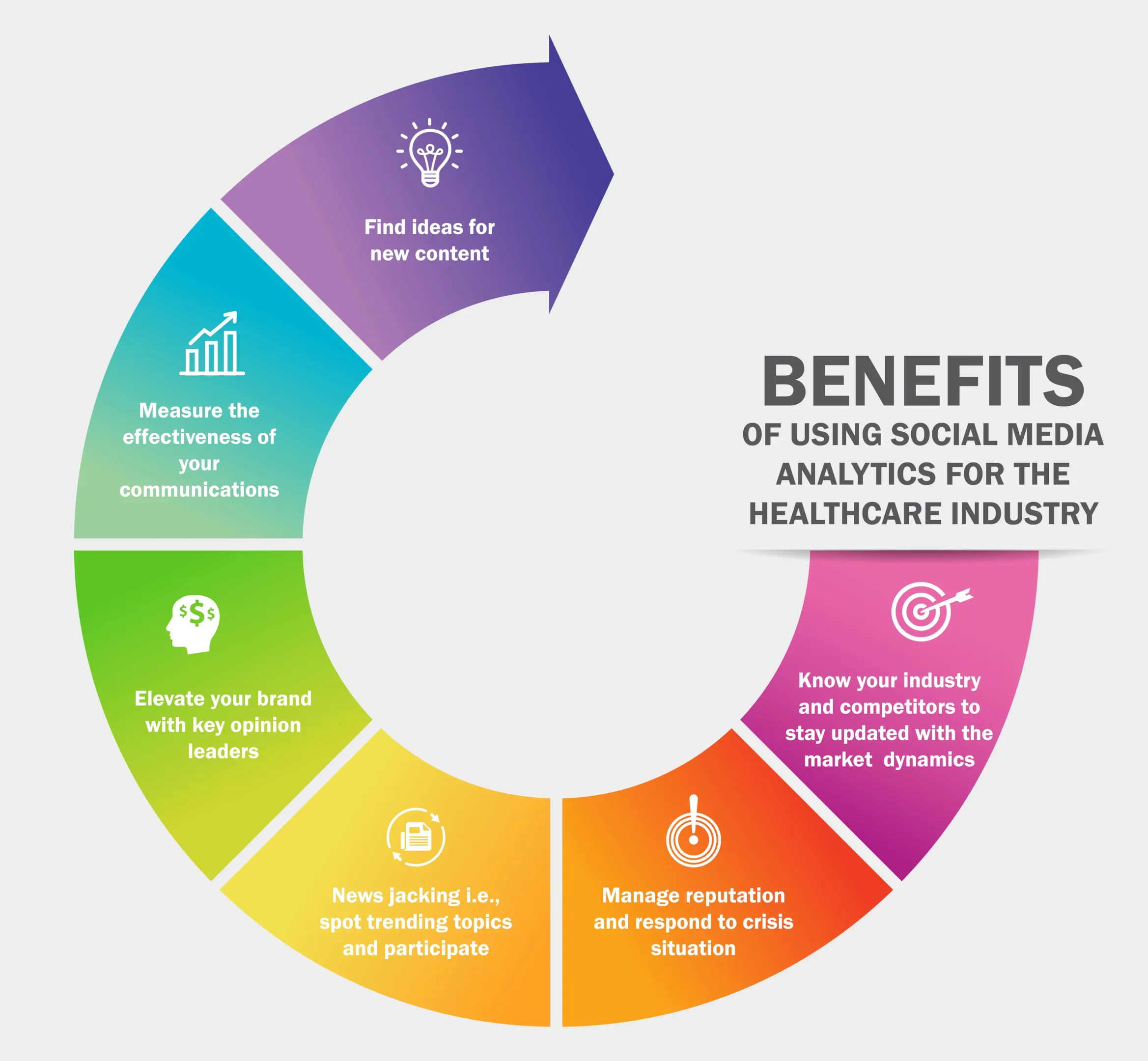
Regular Engagement: Respond to comments and messages promptly to build a community.
Campaigns and Contests: Run interactive campaigns or contests to increase engagement.
Influencer Partnerships: Partner with health influencers to expand your reach.
7. Use Advanced Email Marketing Techniques
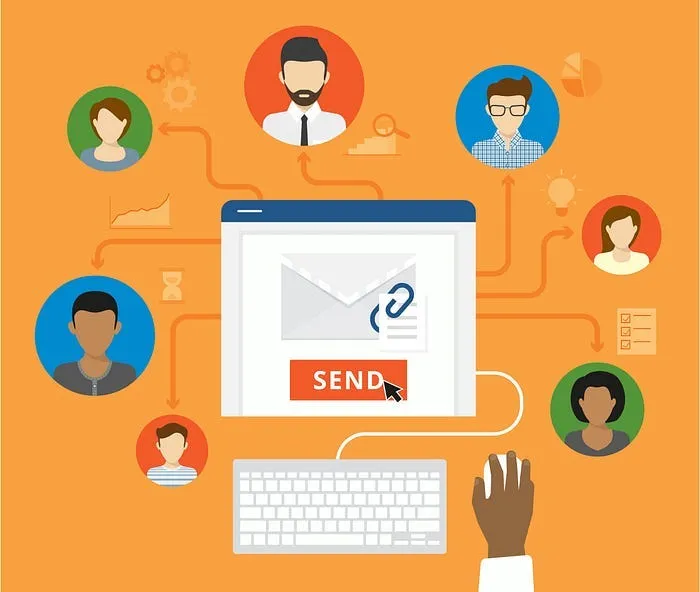
Segmentation and Automation: Segment your email list for targeted communication and use automation for timely follow-ups.
Newsletter with Value: Send out a regular newsletter filled with health tips, news, and service updates.
Feedback Loops: Encourage feedback in emails to understand patient needs better.
8. Expand your Business Through Partnerships

Collaborate with Health Bloggers: Partner with popular health bloggers to reach their followers.
Community Health Programs: Participate in or sponsor community health programs for brand visibility.
Referral Program: Implement a referral program that rewards patients for bringing new patients.
9. Analyse Your Business Performance

KPI Tracking: Set and track Key Performance Indicators (KPIs) like website traffic, conversion rates, and patient inquiries.
Patient Acquisition Cost: Calculate the cost of acquiring new patients and work on optimizing it.
Continuous Learning and Adaptation: Learn from analytics and develop strategies for better results.
10. Build Long-Term Relationship
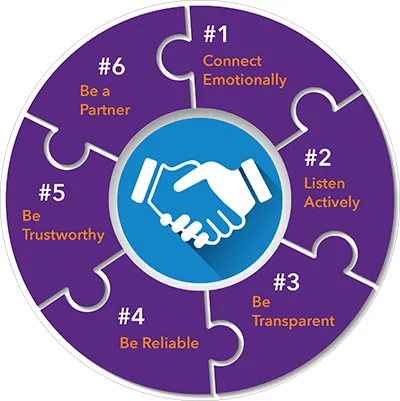
Consistent Patient Communication: Keep in touch with patients through various channels to stay top of mind.
Community Involvement: Engage in community services and events to build a positive brand image.
Transparent and Ethical Practices: Ensure that all your marketing practices are transparent and ethical to build lasting trust.
Digital Marketing and Social Media: Tools for Healthcare Lead Generation

Digital Marketing and Social Media provide the ability to reach a broad audience, target specific demographics, and engage with potential patients in a meaningful way. By combining these tools with a deep understanding of patient needs and preferences, healthcare providers can not only attract more leads but also create relationships with their patients. This approach is crucial for sustained growth and success in the competitive healthcare market.
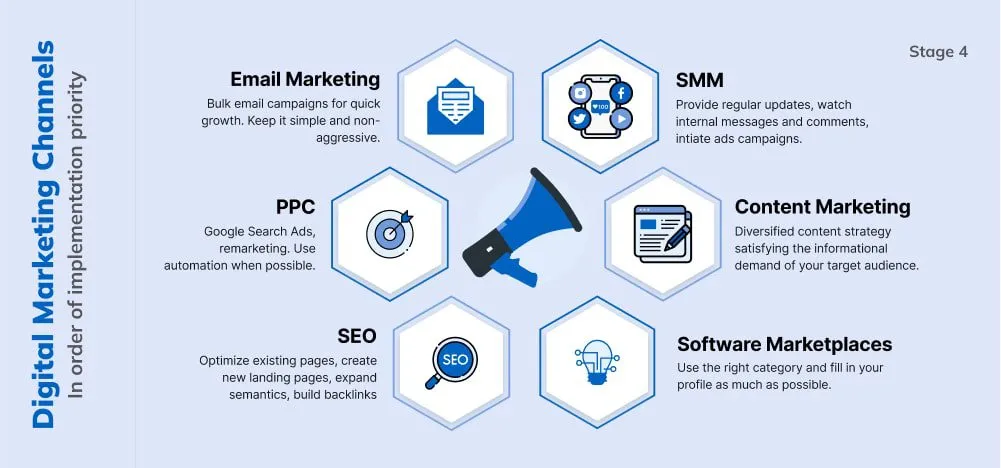
Combining digital marketing and social media for lead generation in healthcare involves a strategic blend of various techniques. Here's a direct approach to integrating these tools effectively:
1. Integrate SEO with Social Media Content
- Use SEO strategies to identify trending healthcare topics and keywords like healthcare industry and medical services.
- Create social media content around these keywords, ensuring your posts are discoverable both on social media and search engines.
2. Leverage Content Marketing Across Platforms
- Focus on Creating high-quality content such as blog posts, articles, and infographics. Use keywords like high quality content and creating compelling content.
- Share this content on social media platforms to drive traffic to your website and enhance engagement.
3. Use Email Marketing to Complement Social Media Efforts
- Segment your email list based on user interaction on social media.
- Send personalized emails with content similar to what users engage with on your social media, enhancing the relevance and effectiveness of your communication.
4. Employ Targeted Paid Advertising
- Use targeted paid ads on social media platforms, utilizing demographic and behavioral data to reach potential patients.
- Integrate keywords from your SEO research into your ad campaigns to ensure consistency and relevance.
5. Engage with Your Audience on Social Media
- Actively engage with comments and messages on your social media posts. This direct interaction builds trust and encourages more people to use your healthcare services.
- Use social media platforms to conduct live sessions, Q&As, and discussions, fostering a community around your brand.
6. Track and Analyze Data from Both Channels
- Use analytics tools to track engagement, website visitors, and conversion rates from both your social media activities and digital marketing efforts.
- Analyze this data to understand what strategies are working and where there is room for improvement.
7. Consistent Brand Messaging Across Channels
- Ensure that your messaging is consistent across both digital marketing and social media platforms. Consistency in messaging reinforces your brand and builds trust with your audience.
- Tailor the content format to suit each platform while keeping the core message aligned.
8. Collaborate with Influencers
- Collaborate with healthcare influencers on social media. Use their reach to promote your content and services to a broader audience.
- Ensure that these influencers align with your brand values and appeal to your target audience.
By integrating digital marketing and social media strategies cohesively, healthcare providers can effectively increase their reach, engage with potential patients more personally, and improve their overall lead-generation efforts. This integrated approach ensures that all marketing efforts work in synergy, maximizing the impact of each strategy.
Operational Insights into the Lead Generation Process
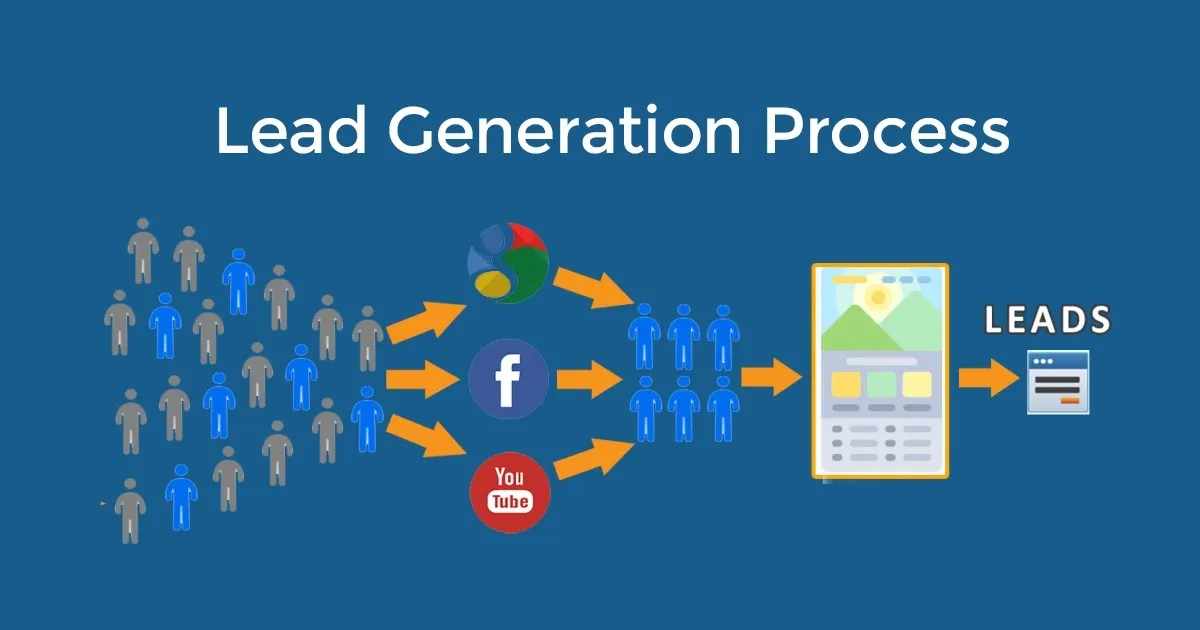
Lead Generation Process for Healthcare Professionals
The lead generation process for healthcare professionals involves a structured approach to identify and attract potential patients. Here’s how to implement it effectively, incorporating key keywords:
1. Identification of Target Market
It's crucial to identify your target market. Understand who your potential patients are. This involves analyzing demographics and health needs, focusing on segments like prospective patients and potential clients.
2. Integration of Content and Digital Marketing
Combine content development with digital marketing for effective reach in healthcare lead generation. Create informative blog posts, health guides, and infographics on common health issues, embedding keywords like healthcare industry and medical services for SEO.
Complement this with digital marketing tactics such as SEO and targeted paid ads, incorporating terms like generate healthcare leads and healthcare lead generation strategies. This cohesive approach ensures you attract, educate, and engage your target audience efficiently.
3. Implementation of Conversion Strategies
Convert your audience into leads by offering value. This can be through free online consultations, health webinars, or downloadable resources. Aim to address the needs of potential patients and qualified leads.
4. Lead Nurturing
Once you have attracted leads, nurture them through personalized communication. Use email marketing to send tailored health tips, updates on new services, and patient success stories.
5. Performance Analysis and Adaptation
Regularly analyze the effectiveness of your lead generation strategies. Track engagement with content, the effectiveness of your SEO efforts, and the conversion rates of your campaigns.
Engaging Target Audience: Potential Patients and New Leads
Engaging your target audience effectively is key to successful lead generation in healthcare. This engagement is a mix of communication, education, and building trust:
1. Understanding Patient Needs
Get to know the concerns and preferences of your potential patients. This understanding can come from patient surveys, social media interactions, and feedback from existing patients.
2. Interactive and Educational Content
Share content that educates and engages. For instance, create interactive health quizzes, host webinars on prevalent health issues, and publish articles discussing new treatments or healthcare trends.
3. Leveraging Social Media Platforms
Utilize platforms like Instagram and Twitter to engage with potential patients. Share patient success stories, health tips, and behind-the-scenes glimpses of your practice. Remember to use relevant keywords like 'healthcare providers' and 'qualified medical leads' to improve visibility.
4. Personalized Communication
Personalize your communication as much as possible. Addressing individual concerns and providing tailored information can significantly boost engagement.
5. Encouraging Online Reviews
Positive online patient reviews from satisfied patients can be persuasive. Encourage your patients to leave reviews on platforms like Google and Yelp. This not only builds trust but also helps in attracting new patient leads.
6. Community Involvement
Engage in community health programs and events. This involvement shows your commitment to healthcare and helps in building a positive brand image.
Targeting Prospective Patients: Advance Strategies and Insights
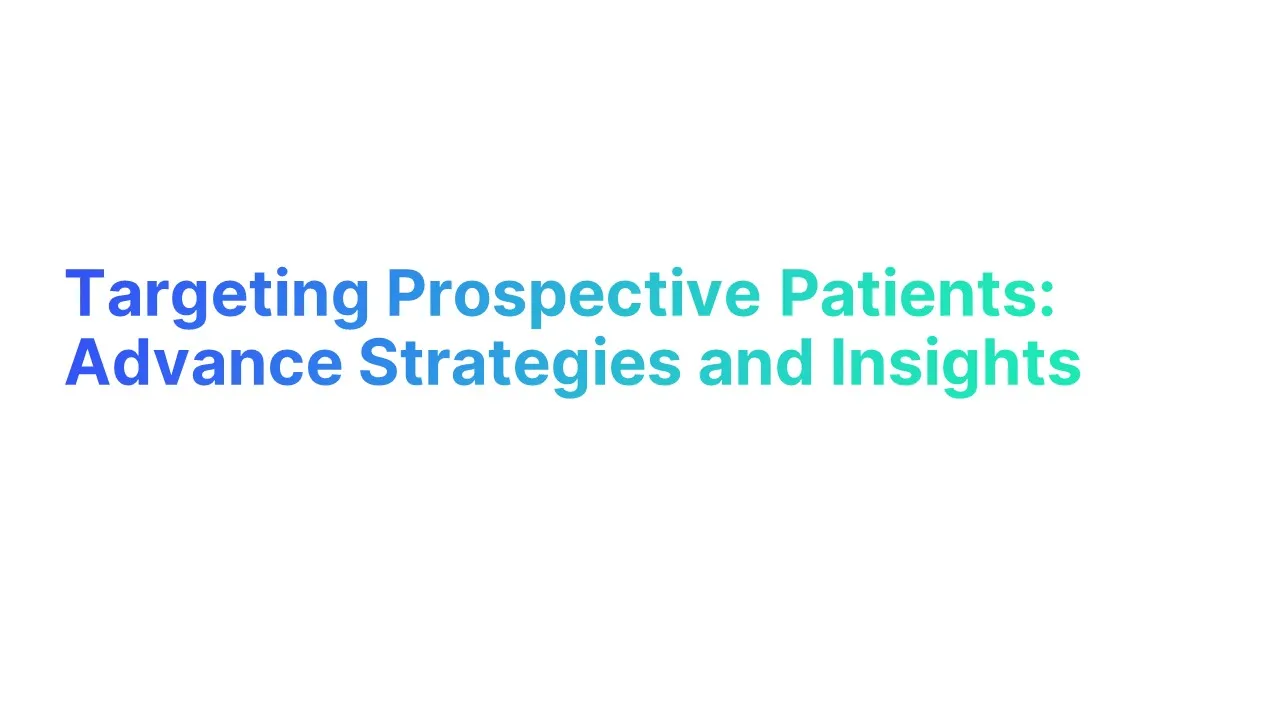
In healthcare, it's essential to continuously update strategies to target prospective patients effectively. This section outlines advanced tactics that emphasize the use of technology, personalization, and patient-focused approaches. These methods are key to engaging prospective patients effectively in the digital era. By applying these strategies, healthcare providers can better connect with and attract potential patients, resulting in higher engagement and better healthcare outcomes.
Leveraging Big Data and AI
- Utilize big data analytics to gain deeper insights into patient behaviors and preferences.
- Implement AI-driven tools for predictive analysis to identify potential patient groups who may require specific healthcare services.
Innovative Use of Mobile Marketing
- Develop mobile-friendly marketing strategies, recognizing that a significant portion of online healthcare searches occur on mobile devices.
- Consider mobile app development to provide convenient health tips, appointment scheduling, and telehealth services, enhancing patient engagement.
Advanced CRM Techniques
- Use Customer Relationship Management (CRM) systems to track patient interactions and tailor follow-up communications.
- Integrate CRM with digital marketing efforts to create a more personalized patient experience, addressing specific health concerns or queries.
Video Marketing and Virtual Tours
- Expand video marketing to include virtual tours of your facilities, introducing staff and showcasing the quality of care.
- Use video content to explain complex medical procedures or treatments, helping prospective patients understand what to expect.
Incorporating Chatbots for Instant Engagement
- Implement AI-powered chatbots on your website and social media platforms. These can provide immediate responses to basic health inquiries, improving user experience.
- Chatbots can also guide users through the preliminary stages of appointment booking or information gathering.
Geo-targeting and Local SEO
- Enhance local SEO strategies to target patients within specific geographic locations.
- Use geo-targeted ads and local keywords to increase visibility among potential patients in your vicinity.
Engagement through Health Podcasts and Webinars
- Start a health-focused podcast or webinar series addressing various medical topics, offering insights from experts, and answering common patient questions.
- These platforms can be used to discuss trends in healthcare, new treatments, and wellness tips, thereby establishing your authority in the field.
Strategic Collaborations and Sponsorships
- Partner with health influencers or bloggers for sponsored content that aligns with your healthcare services.
- Sponsor health-related events or webinars to increase brand visibility and connect with a larger audience.
Focusing on Patient Experience Online
- Ensure your online platforms, especially your website, offer an exceptional user experience with easy navigation, fast loading times, and accessible information.
- Use feedback from online reviews and social media to continuously improve the online patient experience.
Utilizing EHR for Targeted Marketing
- Employ Electronic Health Records (EHR) data (while respecting privacy and compliance regulations) to understand patient histories and tailor marketing efforts accordingly.
Healthcare Lead Generation Strategies: Examples
Effective lead generation is a crucial aspect of attracting potential patients and expanding your healthcare practice. In this section, we will explore practical examples of lead generation in healthcare. Each of these examples demonstrates practical methods of lead generation in healthcare, using a variety of strategies from digital marketing to community engagement.
SEO-Driven Blogging
- A dermatology clinic enhances its online presence by publishing SEO-optimized blog posts on topics like skin care routines and treatment options, using keywords such as healthcare industry and medical services.
- The clinic incorporates high quality content in its blog posts, providing valuable information that establishes its authority and encourages patient engagement.
Targeted Social Media Campaigns
- A dental practice uses Facebook and Instagram to target local audiences with posts about oral health, employing keywords like healthcare providers and digital marketing.
- The practice runs paid ad campaigns targeting potential patients in specific zip codes, ensuring their marketing efforts resonate with a local audience.
Email Marketing for Patient Retention
- A family health clinic implements an email marketing strategy focusing on lead generation efforts. They send newsletters and health tips to their existing patient database.
- These emails are personalized, catering to the individual health interests of each recipient, which helps in maintaining relationships with qualified leads.
Leveraging Patient Testimonials and Reviews
- An orthopedic center showcases patient testimonials on its website and social media, focusing on successful treatment stories. This strategy enhances healthcare lead generation by building trust among prospective patients.
- The center encourages satisfied patients to leave online reviews, aiding in prospective leads through positive word-of-mouth.
Hosting Health Webinars and Workshops
- A mental health clinic hosts webinars and online workshops addressing common mental health issues. This approach serves as a platform for lead generation strategy and positions the clinic as a thought leader in its field.
- The clinic promotes these events through social media platforms, tapping into a wider audience interested in mental health topics.
Partnerships with Local Businesses
- A physiotherapy clinic forms partnerships with local gyms and fitness centers. This collaboration is a form of marketing strategy that allows the clinic to reach new leads who are already interested in health and fitness.
Implementing Google Ads
- A cardiology practice uses Google Ads to target prospective patients searching for cardiac health information. They use keywords like qualified healthcare and medical leads to attract individuals looking for specialized cardiac care.
Concluding Insights and Future Directions
Recap of Effective Lead Generation Strategies for Healthcare
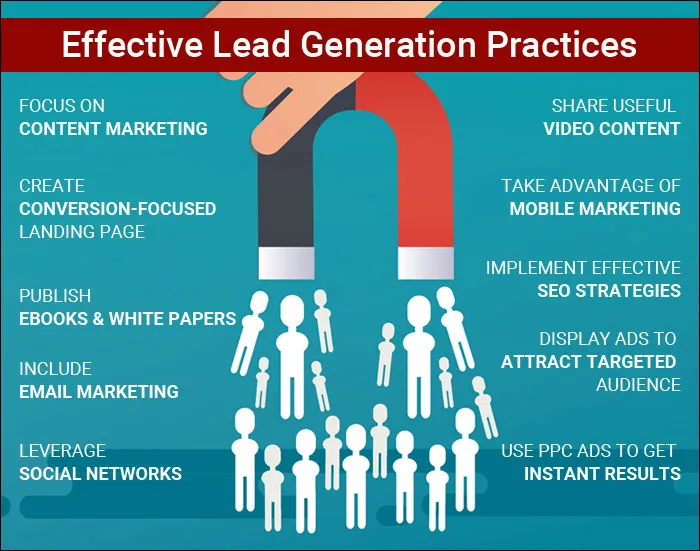
Reflecting on effective lead generation strategies for healthcare, it’s clear that a multifaceted approach is key. Successful strategies have included:
- SEO-Optimized Content: Creating valuable, SEO-optimized compelling content like blog posts and infographics that address common health issues helps to make strong online presence, especially when incorporating keywords such as healthcare practitioners and medical services to generate high quality leads
- Social Media Engagement: Utilizing platforms like Facebook and Instagram for targeted campaigns has proven effective. Keywords like healthcare providers and digital marketing have been pivotal in reaching the target audience.
- Personalized Email Marketing: Email campaigns targeting potential customers and qualified leads with personalized content have significantly improved patient engagement and retention.
- Leveraging Reviews and Testimonials: Showcasing patient success stories and encouraging online reviews have been effective in building trust and generating more leads.
- Hosting Educational Events: Webinars and workshops addressing prevalent health concerns have positioned healthcare providers as industry leaders and built strong community engagement.
Upcoming Trends in Healthcare Lead Generation Methods
Looking ahead, several trends are set to shape the future of healthcare lead generation:
- AI and Machine Learning: The use of AI for predictive analytics in identifying potential patient groups is an emerging trend. These technologies can help in crafting more personalized marketing strategies to generate more paying patients and paying customers
- Video Marketing Expansion: The use of video content, including virtual tours and patient education videos, is likely to grow, providing a more engaging way to connect with prospective patients.
- Advanced CRM Integration: Employing sophisticated CRM tools to manage patient interactions and personalize communication will become more prevalent.
- Mobile Optimization: As mobile usage continues to rise, optimizing all digital marketing efforts for mobile platforms will be essential.
Actionable Steps for Implementing Lead Generation Strategy in Healthcare
For healthcare providers looking to enhance their lead generation strategy, consider these actionable steps:
- Audit Current Strategies: Review current lead generation efforts to identify what’s working and areas for improvement. Focus on underutilized keywords like high quality medical leads and healthcare lead generation strategies for search engine ranking
- Integrate Emerging Technologies: Adopt AI and machine learning for better targeting and personalization. Explore new technologies that can streamline lead generation and patient engagement processes.
- Enhance Online Presence: Strengthen your online presence by updating your website, optimizing for search engines with keywords like high quality leads, and being active on social media platforms.
- Focus on Patient Experience: Improve the patient experience both online and offline. Ensure that your website and social media channels are patient-friendly and informative.
- Regular Training and Education: Keep your team updated with the latest trends and technologies in digital marketing and healthcare lead generation to generate high quality leads
